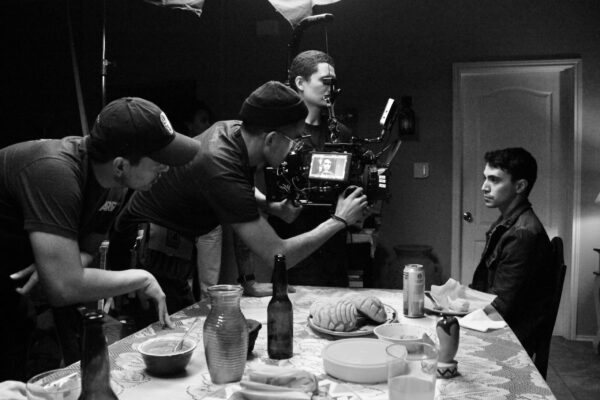Over the past five years, the Latino Media Arts and Studies (L-MAS) program at The University of Texas at Austin has grown from a group of courses and a minor into a hub for Latino studies scholarship, community and creativity. Founded by professors Charles Ramírez Berg, Mary Beltrán and Maggie Rivas-Rodriguez, the program sits in the Moody College of Communication. Its goal is to support the growth of Latino media studies and Latino topics and professionals in the fields of film, television, journalism and advertising.
“In these industries, Latinx people have historically been underrepresented and misrepresented both on screen and behind the scenes,” says Mirasol Enríquez, director of the L-MAS program. “So there is a real opportunity for our graduates to go out and make change in the world.”
The program provides the opportunity for UT undergraduate and graduate students to hear from acclaimed speakers and participate in research opportunities and events. The minor is open to UT undergraduates, and courses include the history of Mexican cinema, reporting on Latin America and international advertising.
A special part of the L-MAS program is the sense of community that it brings to many students, Enríquez says. “We are here to support students, provide them with resources and to help them find other people who care about the things that they do.”
One way the program supports students is through the annual L-MAS Student Awards, where students are encouraged to submit their original short films or papers centered on Latino themes for a chance to win cash prizes. “We want students to share stories about our diverse communities, reinforcing that there isn’t just one Latinx experience, but there are many,” Enríquez says.
Alexander Rosales, a radio-television-film graduate student, was this year’s first-place winner in the Graduate Film Award category. His entry, “Tejano Night,” is a short film about a Mexican American young man who deals with feeling out of place while visiting a bar in South Texas one night. “It’s a story about accepting who you are and trying your best not to shame yourself for what you want,” he says.
On the importance of sharing Latino stories, Rosales says: “We make up about 18% of the U.S. population, but that number isn’t reflected in the amount of Latinx folks that are working in the radio, television, film and media industries. All we can do is continue to tell stories like ‘Tejano Night’ to show that we are plenty capable of commanding a large audience’s attention. Our stories are valuable, and they should be treated as such.”
Looking to the future, Enríquez says the program plans to connect more students to relevant internships where they can continue to develop skills that will help them find careers in television, film, journalism and advertising.
She is proud that the Moody College of Communication houses high-ranking advertising and journalism programs and that the Radio-Television-Film Department has graduated more Latino filmmakers than any other film school in the country. She says the outstanding students UT attracts motivates her team to continue to grow the L-MAS program to make an impact on U.S. media culture.




